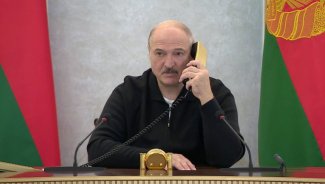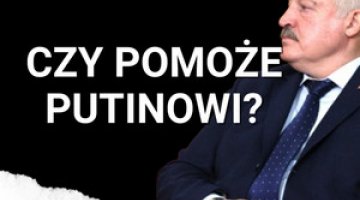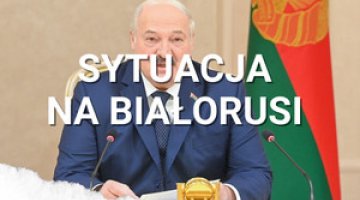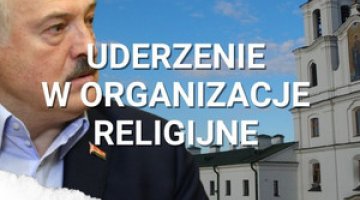Lukashenka versus the public: the power play continues

Mass anti-regime protests were seen again on 13 September in Belarus; this time under the banner of the Heroes' March. About 100,000 people took to the streets in Minsk. Law enforcement forces used stun grenades several times and fired shots in the air, preventing the crowds from entering the Drazdy government residential district. Sunday demonstrations were also seen in Hrodna and Brest (7,000–10,000 people took to the street in each of the two cities), Homel, Mahiliou, Vitebsk, Lida and Navapolatsk. On 12 September, a total of around 20,000 women participated in women's marches in Minsk and other cities. On weekdays, small protests, with a maximum of 2,000–3,000 participants, were held in the streets of Minsk and were pacified by law enforcement forces. The brutality of law enforcement agencies and the number of detainees have increased – over 800 people were detained during the weekend, more than half of them in Minsk.
Last week, the government continued intimidating actions aimed at weakening the mood for public resistance among workers, students and employees of the independent media. The measures employed include detentions and the launch of criminal and administrative proceedings on charges of calling for protests and resisting law enforcement officers. More pressure was placed on the local and independent media, including Belsat and the largest news website Tut.by by sending a warning to the editors that the media act had been violated again, which may lead to the website being blocked.
The government is trying to paralyse the operation of the opposition Coordination Council (CC). After the Belarusian secret services were unsuccessful in their attempt to forcibly transport Maria Kalesnikava to Ukraine on 8 September, on the same day, officers of the Investigative Committee detained another member of its presidium, Maxim Znak, and action was taken to harass the Nobel Prize winner Sviatlana Alexievich, the last member of the CC's governing body remaining at large. Four of its detained members are charged with “attempting to seize power”, which is punishable by up to five years in prison. Alyaksandr Lukashenka’s statement, who was commenting on the nomination of the new prosecutor, was a sign confirming the government’s determination to increase repressions. When introducing Andrei Shved to his subordinates, Lukashenka called for criminal regulations to be applied in a more robust manner, suggesting that a biased interpretation would be admissible.
During the Security Council’s meeting on 12 September, Lukashenka instructed the Ministry of Defence to assess the activity of NATO troops in Poland and Lithuania. The defence minister stated that although US forces were reported to be active near the border with Belarus, training projects in Hrodna oblast had been completed and the units participating in it had returned to their base. This does not mean that Belarusian troops are no longer in readiness mode. The air defence forces (integrated with Russia's air defence) are constantly on duty due to the increased activity of NATO air forces close to Belarus’s borders.
Before his 14 September visit to Sochi, President Lukashenka gave an interview to the Russian media. He stressed that he would not relinquish power, although he did not rule out holding a snap presidential election following constitutional amendments. He also repeated his accusations that Poland and the Czech Republic are controlling the public protests, which are inspired by the USA.
Commentary
- The protests that have been ongoing since 9 August are still peaceful, and there is no visible tendency of them becoming radicalised. They invariably attract a great number of participants (especially in Minsk) and are also continued in oblast capital cities and some region capital cities. Public anger can still be felt – last week, representatives of various professional groups (including 140 teachers from the Minsk State Linguistic University and 93 top football players) expressed their objection to the regime's actions. Some companies, including Belaruskali, one of the most important companies for the national economy, have announced further strikes. At the same time, it seems that there is a growing awareness of the need to change the forms of protest – there have been appeals on social media calling for the establishment of so-called public ‘self-defence’ structures that would be tasked with obstructing the arrests of demonstrators and identifying masked officers.
- The protest mood remains strong partly due to the increasing brutality of the law enforcement forces, including against women, although the government is still refraining from applying decisive pacification measures. The regime hopes that the public will become increasingly discouraged from participating in demonstrations and, to this end, is using increasingly brutal forms of pressure on those involved in the opposition's activities. The prosecution authorities are likely to adopt a tougher punishment policy, including the biased and severe criminalisation of acts regarded as crimes against the regime. Although the protests are still coordinated primarily via the Telegram social network channels, since the government is unable to neutralise them, it is determined to punish opposition political leaders. The detained members of the presidium of the CC and activists representing the employees of industrial plants are likely to be sentenced to imprisonment. This move is intended to prevent the opposition political leaders from gaining strength and to temporarily discourage the public from participating in the protests, and also to eliminate a possible dialogue group.
- Lukashenka is taking steps to convince the international community that he is regaining control of the situation in the country, and that the protests are gradually losing intensity. The reduced involvement of the armed forces in training projects in the Hrodna oblast is expected to be proof of the situation in the country normalising. At present, the shape of future relations with Russia will be the greatest challenge for the government. Lukashenka must expect increased demands from the Kremlin in exchange for the political support offered over the past few weeks. The price for further support will be increasing pressure for integration with Russia to be stepped up and it is possible that Belarus will be encouraged to launch constitutional reform. Although this has not been ruled out by the government, this should be treated as an attempt to channel the sentiment of protest rather than a desire to start real dialogue with the public and conduct political reforms.




